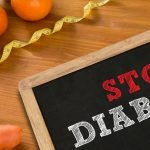Fitness guru Jack LaLanne once asked, “What’s the good of living if you can’t have the things that give a little enjoyment?” He was referring to the need to indulge in a bit of junk food on occasion. Perhaps those diabetics who follow their sugarless diet rigorously have fallen victim to Jack’s concerns, as a new study confirms a strong link between depression and diabetes.
The link, it seems, goes both ways. Depression causes diabetes and diabetes causes depression. The latest study to confirm this relationship was out of the Harvard School of Public Health in Boston and involved over 65,000 female participants between the ages of 50 and 75. The researchers found that the clinically depressed women in the sample group had a 17 percent higher incidence of diabetes than non-depressed subjects, even after adjusting for other risk factors such as obesity. Interestingly, those women taking antidepressants had an even higher rate of diabetes, at 25 percent.
Conversely, for those women who already had diabetes, the risk of developing depression was alarmingly high — 29 percent greater than in the population at large. And for those women taking insulin to control their diabetes, that percentage of depression jumped to a 53 percent increase over non-diabetic women.
While earlier studies also found a link between diabetes and depression, this one used a far larger population, making it ever more clear that the two conditions — diabetes and depression — certainly are interrelated. Researchers think the interplay may be due to stress. Stress raises levels of the hormone cortisol, which affects blood sugar metabolism, increases insulin resistance, and can cause increased belly fat. All of these things contribute to the development of diabetes. At the same time, stress often causes unhappiness and may lead to depression.
As for why diabetes causes depression, the research director, Dr. Frank Hu, names the hassle of managing the disease as a primary factor. “There is long-term stress and strain associated with diabetes management such as blood sugar control and treatment for complications, and this can lead to decreased quality of life and increased probability of depression,” he says. His colleague, Dr. Leonid Poretsky, who directs Friedman Diabetes Institute at Beth Israel Medical Center in New York City, adds, “Diabetes can make depression worse because diabetes is chronic illness with a lot of worries.” He further notes, “So much of the treatment for diabetes is self-care, and people who are depressed may not take good care of themselves. They don’t exercise as much and may have other issues in terms of watching their diet, checking their blood sugar, and taking medications.”
The problem with Dr. Poretsky’s argument is that in the Harvard study, diet and exercise were controlled for, and still, diabetic patients far surpassed the normal population in incidence of depression, even when they exercised and ate as well as the control group. One thing he did say, though, might be a key factor. He mentioned that the side effects of depression medications might add to diabetes incidence. The data certainly support this possibility, given the fact that those on antidepressants have an elevated incidence of diabetes even compared to other depressed patients.
It also is noteworthy that those diabetics taking insulin showed almost double the rate of depression compared to those diabetics who didn’t take insulin. While the experts imply that it’s the added burden of administering insulin injections that doubles the rate of depression, it makes sense that the huge spike might actually, at least in part, come from some biochemical effect of the insulin itself. While having to inject insulin certainly might impact self-image and cause complications in lifestyle, the dramatic difference in numbers between depressed insulin-dependent diabetics versus non-insulin taking diabetics seems exaggerated.
As I’ve written before, injectable insulin is chemically identical to the insulin produced in the body, but it doesn’t work the same way. Your liver and pancreas regulate insulin levels in your body on a second by second basis. Injectable insulin is a crude, blunt force instrument that massively pumps insulin levels every 4-6 hours with each injection, and this is not good. When insulin levels are consistently elevated (as they would be multiple times a day following injections), a long list of deadly complications are created. Perhaps depression is one of those complications.
The bottom line is that avoiding becoming dependent on either insulin or antidepressants is essential. As I always say, good diet, plenty of exercise, and regular detoxing are the best insurance policies. If you should become depressed, there are other avenues of treatment that studies show to be at least as effective as antidepressants, without the side effects. And if you should develop diabetes, you might consider undertaking a full regimen to heal the body and actually reverse diabetes, rather than merely trying to control the symptoms with medications and insulin injections…while the body continues to deteriorate.
Hiyaguha Cohen
www.jonbarron.org












Did anybody look at Vitamin D
Did anybody look at Vitamin D level? As you already know (Vitamin D Council) this are often very low in diabetics AND in depressed people. Perhaps low Vitamin D levels should be assessed (and levels of the magnesium, zinc, Vitamin C and Co-Q 10 required for Vit D to be absorbed and utilized). Just a thought.
Jon, have you read any
Jon, have you read any material from Katherine Benziger, PhD (like her book “Thriving in Mind”)? She has researched for many years the relationship between brain physiology and Carl Jung’s work. She found a strong link between what she and Jung (and Freud) called “Falsification of type” and physiological stress – which, if not corrected, lead to depression and possibly even to death. As a person uses non-native talents (non-dominant brain quadrants) for several hours a day, day after day, this use drains physical energy for the person. (A person may be required by a job, school, parental requests, societal ostracism, etc. to use parts of their brain that are difficult for/require more energy for them rather than using their innate gifts or the brain quadrant that is easy for them to use [which by-the-way can increase physical energy when the person is ‘in flow state’].) After long-term falsification of type, PASS (prolonged adaptive stress syndrome) sets in and causes the para-sympathetic nervous system to kick in and start shutting down the body, like it would if a person fell into an icy lake and the body needed to shut down to prolong life.
I can directly identify with Benziger’s finding because my body began to exhibit PASS after my job changed and I quit using my talents every day to use less efficient parts of my brain. Very interesting stuff and relates to findings on cortisol/stress/depression/insulin dependence.
Thanks,